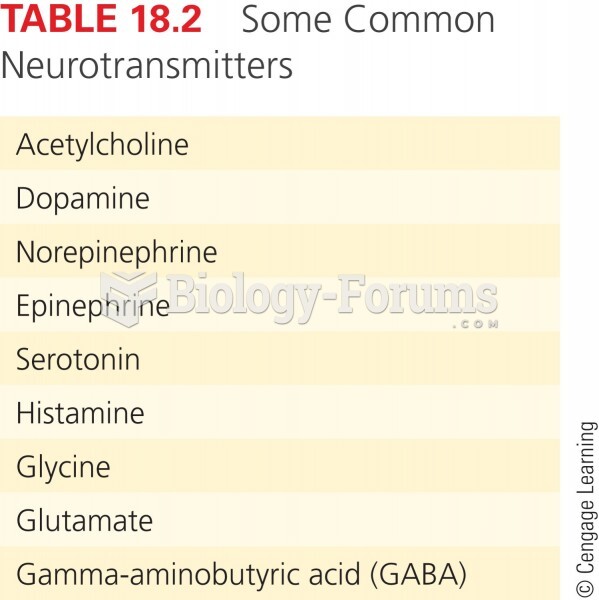|
|
|
The human body produces and destroys 15 million blood cells every second.
More than 50% of American adults have oral herpes, which is commonly known as "cold sores" or "fever blisters." The herpes virus can be active on the skin surface without showing any signs or causing any symptoms.
Certain topical medications such as clotrimazole and betamethasone are not approved for use in children younger than 12 years of age. They must be used very cautiously, as directed by a doctor, to treat any child. Children have a much greater response to topical steroid medications.
The top five reasons that children stay home from school are as follows: colds, stomach flu (gastroenteritis), ear infection (otitis media), pink eye (conjunctivitis), and sore throat.
In 1835 it was discovered that a disease of silkworms known as muscardine could be transferred from one silkworm to another, and was caused by a fungus.
 Cholelithiasis. Common sites of gallstones in the generalized condition. (a) Stones in the hepatic d
Cholelithiasis. Common sites of gallstones in the generalized condition. (a) Stones in the hepatic d
 Common skin signs are often evidence of an illness or disorder. A wheal is a localized, evanescent ...
Common skin signs are often evidence of an illness or disorder. A wheal is a localized, evanescent ...





